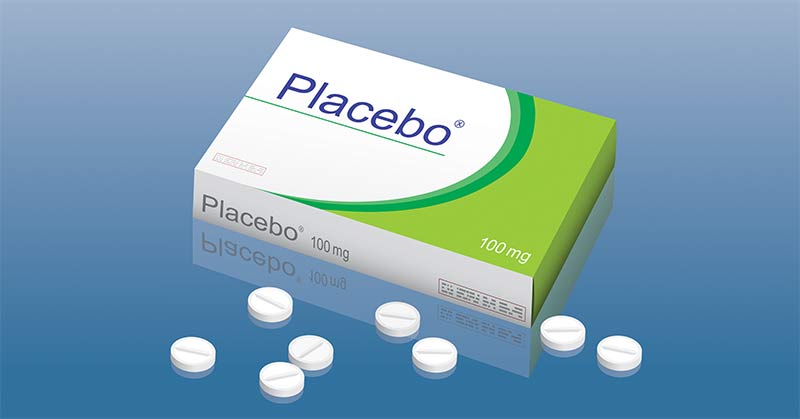[mashshare]

The use of caffeine within sports is rampant. Banned at certain dosages by the World Anti-Doping Agency (WADA) until 2004, today almost three-quarters of anti-doping urine tests contain a measurable amount of caffeine. In addition, when questioned as to whether they were planning on consuming caffeine during their race, most athletes competing at the 2005 Ironman World Triathlon Championships said they were. This indicates that the vast majority of athletes believe that caffeine has performance-enhancing effects, and that its use is widespread.
The Uncertain Benefits of Caffeine Use
It’s not entirely clear how caffeine elicits its performance-enhancing effects. A number of different mechanisms have been proposed through research. These include an increase in calcium within the muscle, which allows for an increase in cross-bridge attachments, improving muscular contractions and muscle fiber recruitment. This, in turn, allows for a greater amount of force to be produced. Caffeine also increases fat burning, which allows athletes to use up less of their muscle glycogen stores, saving them for later in the race and hence improving endurance performance.
Caffeine also appears to reduce rating of perceived exertion (RPE) and pain, which again allows exercise to continue for a longer period of time. While all of these mechanisms are sound in terms of rationale, one issue is that the support for each is inconsistent across the published research. Where one study suggests that caffeine improve fat burning, another finds no evidence of this; the same is true for improvements in motor firing rates.
In the absence of a firm physiological mechanism, it’s possible that the use of caffeine by athletes is due to their belief that caffeine improves performance—in other words, caffeine might have strong placebo effects. Christopher Beedie, a researcher based at Canterbury Christ Church University in the U.K., has examined this extensively. In a paper published in 2006, Beedie and colleagues reported the results of an experiment conducted on six well-trained male cyclists.
In this study, the cyclists underwent three experimental 10-km cycle time trials. In each experimental trial, the cyclists were told they were consuming differing dosages of caffeine: either none, 4.5mg/kg, or 9mg/kg. When the subjects were informed they were consuming no caffeine, their performance decreased on average by 1.4% as compared to baseline tests. However, when they were told they had consumed caffeine, their performances increased, by 1.3% in the 4.5mg/kg trial, and by 3.1% in the 9mg/kg trial.
From this, it seems obvious that caffeine improves performance, except that in each trial the subjects had actually consumed a placebo instead of caffeine. In this particular experiment, it wasn’t caffeine that improved performance, it was being told you had taken caffeine that improved performance. Interestingly, being told you hadn’t taken caffeine actually reduced performance when compared to other trials where caffeine wasn’t consumed, illustrating the possibility that there may well be a nocebo effect also present with caffeine use.
Caffeine didn’t improve performance; being told they had taken caffeine improved performance. Share on XResearchers based in Torino, Italy, published another interesting paper in 2008. In this study, the authors got the subjects to carry out the leg extension exercise to failure at 60% of their 1RM. For the next two testing sessions, the subjects got a dose of caffeine and carried out the test to exhaustion at 60% 1RM again, before a final test, again at 60% 1RM. In this final test, only half the subjects got the caffeine, while the other half received nothing. The group that received the caffeine produced significantly more power in this test than the group receiving nothing. At least, that’s what the subjects thought had happened. In actual fact, neither group had received caffeine at any time; it was just an inert placebo.
Even better, in the second and third testing sessions, the researchers had surreptitiously reduced the weight lifted by the subjects to 45% of 1RM. This had the effect of making the exercise feel really easy, which the subjects put down to the ergogenic effects of caffeine. This belief carried through to the final test, carried out at the correct weight, with those who believed they had consumed caffeine seeing a performance enhancement when compared to a control group.
Overall, this indicates that if you think caffeine improves your performance, your performance will improve. In addition to this, if you think caffeine improves performance, and you think you’ve taken caffeine, your performance will improve—even if you haven’t taken caffeine! The downside to this is that, if you think caffeine improves performance, but you think you haven’t taken caffeine, then your performance will likely suffer. A study published in 2016 by researchers based in Brazil backs up these findings. They found that, during a caffeine placebo trial, those that correctly identified they hadn’t taken caffeine saw a loss of performance compared to a control trial, while those who thought they had taken caffeine saw an improvement in performance compared to a control trial.
These effects aren’t just limited to caffeine use, either. They’re also present with the consumption of other ergogenic aids, such as carbohydrates. For example, a study published in 2000 put 43 competitive cyclists through two 40-km time trials. The first trial was to establish baseline; in the second trial, the subjects were randomized to receive either a carbohydrate drink or a non-caloric placebo. Some subjects were told they had been given carbohydrates, some were told they hadn’t been given carbohydrates, and some weren’t told anything. Overall, those who were told they had consumed carbohydrates saw an improvement in performance, regardless of whether they had actually consumed carbohydrates. Those told they hadn’t been given carbohydrates saw a reduction in performance—even if they had actually consumed the carbohydrate drink.
Are Performance-Enhancing Drugs Just a Placebo?
Finally, we have performance-enhancing drugs. It comes as no surprise that anabolic steroids improve strength in athletes. A review article from 1991 found that, in trained athletes, the use of anabolic steroids improved strength by an average of 5%. That’s a pretty handy improvement, and subsequent studies have shown similar results. One such study is that from Maganaris and colleagues from 2000, where subjects were given anabolic steroids, and improved their bench press by an average of 10 kg. Given that their previous bench press personal best was around 200 kg, this was a 5% improvement.
Of course, by know you can probably guess that the subjects in this study weren’t given anabolic steroids, but an inert sugar pill. The researchers then told half of the group that they had, in fact, been taking a placebo pill, and got all subjects to repeat the test. Those told they had consumed a placebo lost pretty much all of the strength increases gained when they thought they were taking steroids, while those who still thought they were taking steroids either maintained their strength or saw further improvements.
The key point here is that it’s not always the effect of a supplement or drug that is important; instead, it’s the effect that the athlete believes the substance they’re taking will have that can improve performance.
Given that the placebo effect can have a real performance-enhancing outcome, this can put coaches in an ethical dilemma: Is it OK to lie to athletes, in order to get them to believe in the efficacy of a supplement or training method? Many might see this as unethical, and I would tend to agree. However, what is clear is that athlete-coach relationships become crucial, because if the athlete trusts in the coach’s ability to improve their performance, the chances of their performance improving are higher.
It’s more important for coaches to improve an athlete’s performance than it is for them to be right.
Similarly, when working with athletes who have a belief that something is performance-enhancing, that belief itself is likely performance-enhancing—perhaps more so than the training method or supplement itself. This leads to the potentially uncomfortable fact that providing evidence to an athlete that a particular method has no basis in science could actual reduce their performance. What is worth remembering, and something that I often forget, is that it’s more important to improve an athlete’s performance than it is to be right. Sometimes coaches will just have to bite their tongue.
Since you’re here…
…we have a small favor to ask. More people are reading SimpliFaster than ever, and each week we bring you compelling content from coaches, sport scientists, and physiotherapists who are devoted to building better athletes. Please take a moment to share the articles on social media, engage the authors with questions and comments below, and link to articles when appropriate if you have a blog or participate on forums of related topics. — SF
[mashshare]




